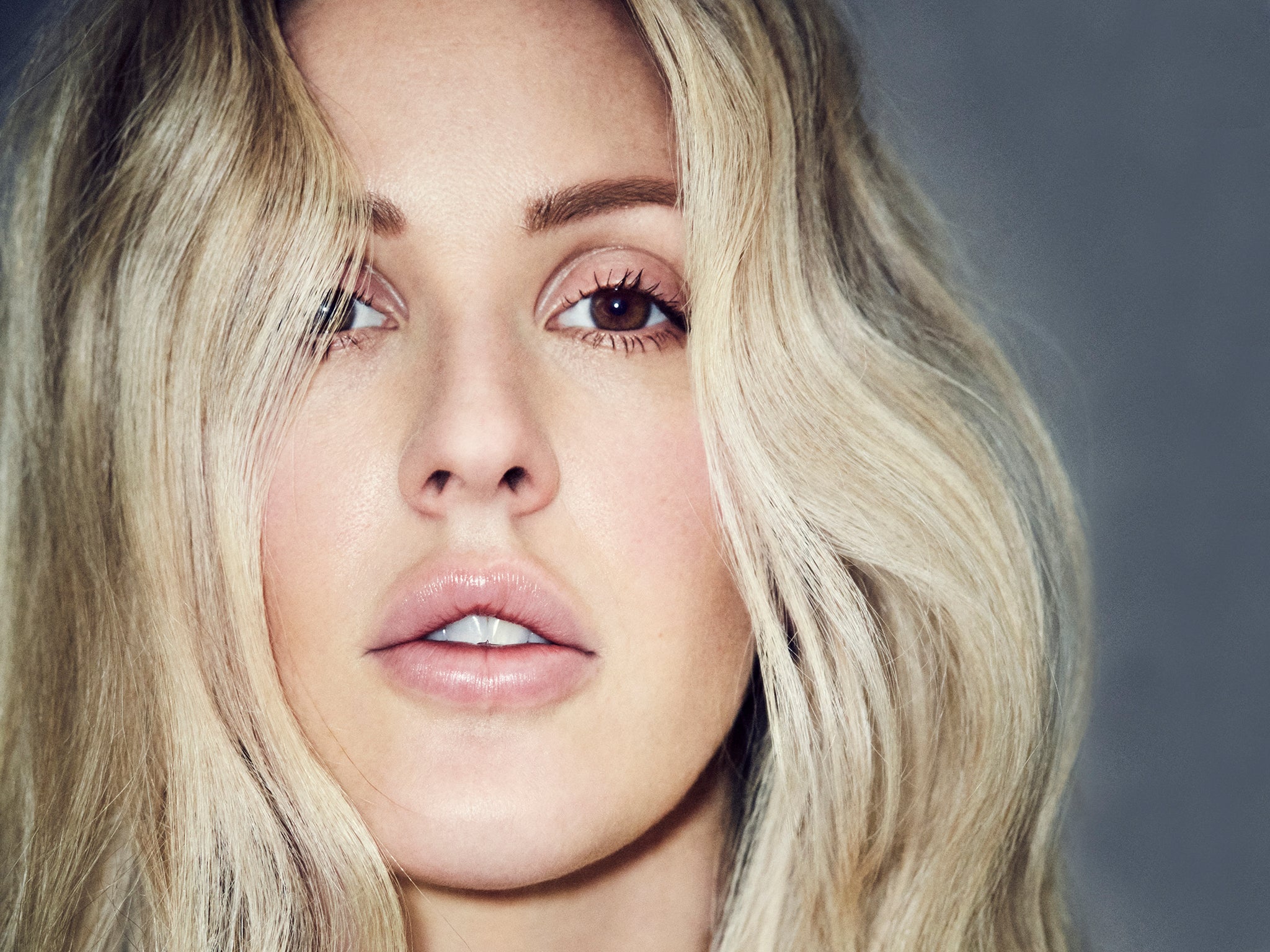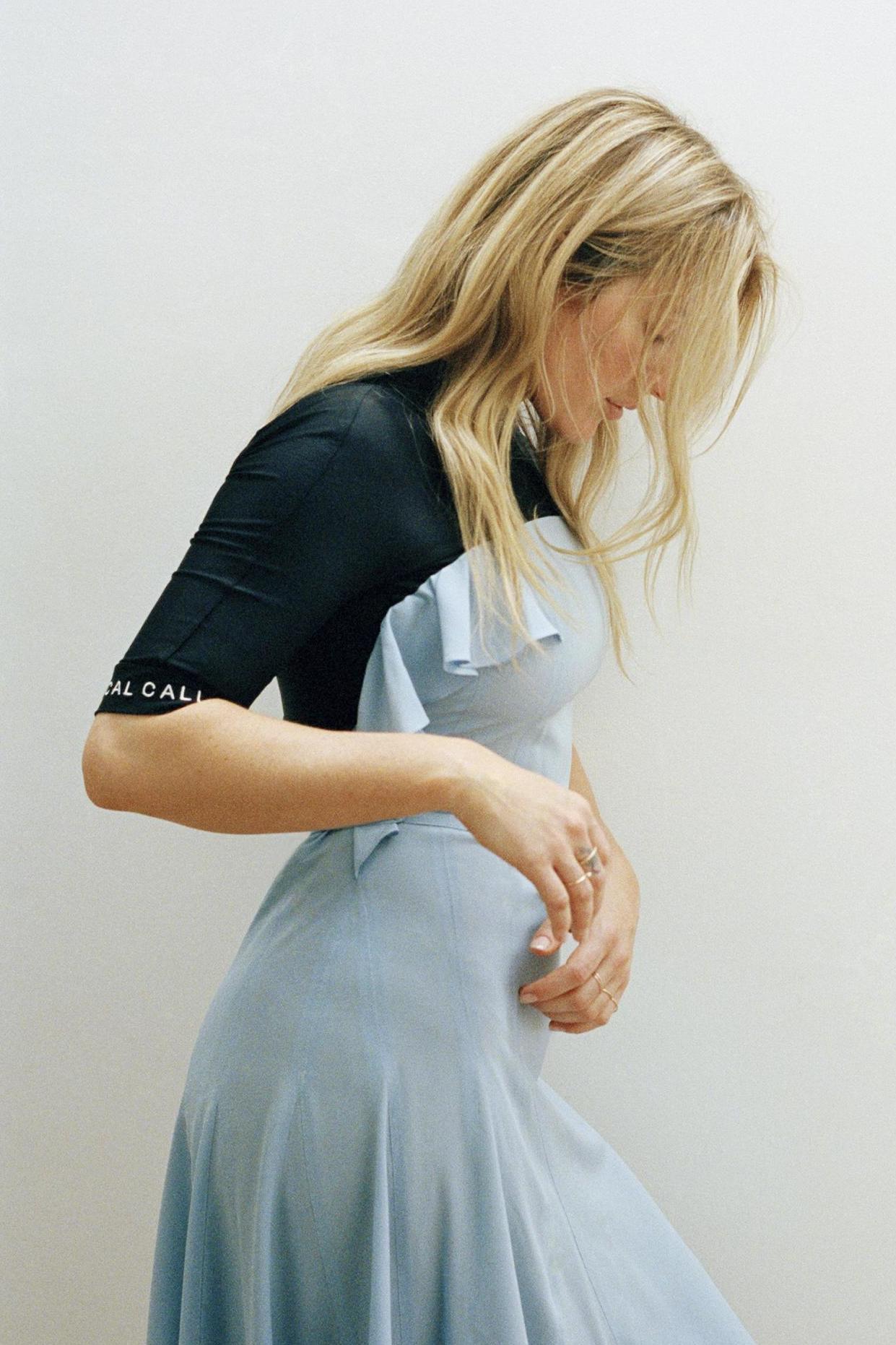Ellie Goulding: ‘I feel really stupid for saying I wasn’t affected by the MeToo movement’
As she releases her fourth album, Brightest Blue, the singer songwriter talks to Helen Brown about false stories in the press, being ‘taken advantage of’ in her twenties, and how she struggles to tolerate injustices


Your support helps us to tell the story
From reproductive rights to climate change to Big Tech, The Independent is on the ground when the story is developing. Whether it's investigating the financials of Elon Musk's pro-Trump PAC or producing our latest documentary, 'The A Word', which shines a light on the American women fighting for reproductive rights, we know how important it is to parse out the facts from the messaging.
At such a critical moment in US history, we need reporters on the ground. Your donation allows us to keep sending journalists to speak to both sides of the story.
The Independent is trusted by Americans across the entire political spectrum. And unlike many other quality news outlets, we choose not to lock Americans out of our reporting and analysis with paywalls. We believe quality journalism should be available to everyone, paid for by those who can afford it.
Your support makes all the difference.Ellie Goulding has eye rolling down to a fine art. So when I ask about the tabloid headlines that have preceded the release of her acclaimed fourth album – Brightest Blue – her pupils loop the loop like they’re on rails.
“I hoped they’d be bored by listing my ex boyfriends by now,” she sighs. “But no. The lists get rehashed. And they said I was ‘making scathing comments’ about them, right?”
Yes, I nod back at her Zoom link. That was the Mirror. The Sun had her “taking aim”. The Daily Mail said she was “taking swipes” and the Daily Star quoted her “cutting digs”. All rehashed the list of celebrities with whom her name has been linked: Ed Sheeran, Niall Horan, Radio 1 DJ Greg James, actor Jeremy Irvine, McFly bassist Dougie Poynter, American music producer Skrillex and – it’s rumoured – even Prince Harry.
I’m uncomfortably aware of the part of me that’s still hungry for the inside track on all those relationships. But I’m equally conscious that Goulding has just made the most accomplished album of her 10-year career: an album that takes a deep dive into intimate electronic soul before surfacing with a series of sparkling pop bangers that express her flirtier “alter ego” as a chart conquering “superwoman”. She reminds me that she’s a “writer first”, and “played almost every instrument on this record”. She has every right “not to be defined by the successful men with whom I’ve been associated and recognised as a successful person in my own right”.
But Goulding is a generous interviewee and, almost as soon as she’s done with the eye rolling, she relents, shrugs and forgives the journalists who continue to “save those awkward questions about my exes for the end of interviews”. Because, she concedes, she also has her nosy side.
“When I discovered Joni Mitchell, Stevie Nicks and Bjork, I have to admit it: I googled who they had dated. I loved them so passionately that I wanted to know everything about them, especially their romantic histories. I wanted to know who they’d written songs about. So I get the impulse. It’s a way of relating, connecting.”
She’s less forgiving of the way she’s been described as slating her exes. “I’m in such a good place now,” she says, “that far from attacking exes, I’m constantly offering the other side of the story, offering resolution. It’s hard to be rational in a pop song and I could spend a lifetime mining the chaotic emotions of my twenties in the studio. But I’m saying: ‘I f***ed up a bit as well.’ I’m saying: ‘It wasn’t just him, it was me too.’ I’m putting myself in a vulnerable place.”
The vulnerability in Goulding’s voice has always been her USP. Both sweet and salty, her distinctive vibrato saw her attract attention from the moment she first began performing at open mic nights in London as a teenager and signed to Polydor records aged just 22. “Although,” she tells me, “after I’d become famous — and particularly after I sang at the Royal Wedding in 2011 – lots of people who knew me at school told the press that there was ‘nothing special’ about me when I was growing up.”

Born in 1986, Goulding is one of four siblings raised in a council house in the small Herefordshire village of Lyonshall. Her childhood was difficult. She doesn’t know why her father, Arthur, a funeral director, left the family when she was five years old. Contact quickly dwindled. In early interviews she described his “obsession with murder”. He once gave her a file of gory murder details he had collected, complete with graphic images. Young Goulding became obsessed with it, delving into a dark side which she says permeates many of her songs. You can hear it snaking through songs like her 2015 hit “Love Me like You Do”, from the soundtrack to Fifty Shades of Grey.
Enjoy unlimited access to 100 million ad-free songs and podcasts with Amazon Music
Sign up now for a 4 month free trial (3 months for non-Prime members)
Enjoy unlimited access to 100 million ad-free songs and podcasts with Amazon Music
Sign up now for a 4 month free trial (3 months for non-Prime members)
Goulding kept the murder file until her mother found it and burnt it in the back garden. Today Goulding tells me that her relationship with her mother Tracey – an artist and music fan who used to hang out with punk group Siouxsie and the Banshees, and who worked for various record companies as well as in a supermarket – was also troubled. And it still is, although she doesn’t want to go into detail at the moment.
“It’s frustrating,” she says, “because I really want to talk to you about it. I haven’t seen my mother since my wedding [to art dealer Caspar Jopling] last year. I’ve done a lot of therapy about it. I think a lot of women have difficult relationships with their mothers and we find it hard to talk openly about that. I hope one day I’ll be able to get this off my chest. But for now I know it comes bubbling through my subconscious, through my music.”
Although Goulding made her 2010 breakthrough with a gentle folktronica sound, her early musical passion was for rock and grunge. She tells me she was “quite late to the sleeping-with-boys party” and spent “most of my teenage evenings in my bedroom, transforming myself from a crap guitarist to a f***ing maestro in four years. I practised meticulously: Pearl Jam songs, Nirvana songs. I was so curious about men. I fantasised about them, wrote stories about them instead of experiencing anything first-hand.”
After acing her A-levels, Goulding became the first person in her family to attend university (studying drama at Canterbury). But she struggled financially. “My friends all got money from their parents but I had to work – retail and a theatre job. I also needed the money to get to London for open mic nights.”
She knows she “left it too long to speak out about my #MeToo moments. I feel really stupid for saying I wasn’t affected by the #MeToo movement. Those university years were when those problems started for me. I struggled to make the money for trains and that’s when producers started to take advantage, asking me to stay over. A part of me knew it was wrong. But a part of me accepted it. I thought: ‘OK, this is what happens, they help you make a great song and you owe them something’.”
Goulding looks straight at her computer camera as she’s clear in stating: “I normalised too much and I am sad about that. Later, I ended up being too reliant on blokes. I would love to talk to more female musicians about this. I don’t have a good connection with that many female artists and I wish I did. I want to ask: what did I – what do I – have to do to prove myself as a musician?”
You can hear Goulding taking aim at the patriarchy on new songs “Woman” and “Power”. Throughout her career, she tells me, “people have told me my records are a ‘guilty pleasure’. Why? I don’t think I make cheesy or embarrassing music. Is it my soft voice? Can you not admit to liking a feminine voice?” She says has also “often been dismissed as ‘just a blonde’”, even though, like Dolly Parton, she isn’t. “I occasionally think if I returned to my natural dark brown I might be taken more seriously. Then I think: why should I change? I like the blonde. It feels like part of my identity.”

Peroxide and Pantene ads aside, she hasn’t always enjoyed “all the make-up and the costumes”. She felt she was being turned into a “pop robot” while making and touring her last album, Delirium, which she thinks was a great pop album, just not one that was true to who she really is.
Goulding’s identity crisis was compounded by false stories circulating in the press. “There were two situations in which I felt I was made out to be the bad person and that was absolutely not the case,” she tells me. “But I’m convinced that if I spoke out against people who were very much in the spotlight then I would have been the one in trouble. I hate that I had to stay quiet and couldn’t stand up for myself. I hate the fact that it was out of my control. But I was petrified of putting a job I’d tried so hard to get in jeopardy. I was doing well in America. I was scared of being ‘cancelled’ as the kids say these days. I felt really angry about how easily I could have been removed from the culture because my value was deemed to be less than that of the men involved. I’ve written an essay about it, that’s how much it pissed me off. The truth is really important to me. My friends know I struggle to tolerate even the tiniest injustices, let alone the f***ing big ones. I can’t settle until they’re solved. On the other hand, I don’t have any desire to put anyone down or bring issues back up.”
I wonder if she is talking about the rumour that she cheated on Ed Sheeran with Niall Horan, a story many believe is told in the lyrics of Sheeran’s hit “Don’t”. But Goulding waves this off with a brisk, “No! I’m not referring to that. That was crazy. If people even knew what that whole story really was… well! I’m friends with Ed, I’m friends with his wife. We love to talk about music.”
Today, she enjoys talking about the influences on Brightest Blue. “I was listening to a lot of Kanye West, Frank Ocean, The Weeknd, Drake.” You can hear them all swirling through the first half of the record, like spirits swilling at the bottom of a cut-glass tumbler. They’re mixed with her “melancholy” classical influences: “I’ve really missed live classical music in lockdown,” she tells me. “There’s nothing like the feeling you get when you’re in a room with a whole orchestra. Instead, I’ve been listening to recordings by Einaudi, Max Richter, Jean-Michel Blais and the Norwegian composer Ola Gjeilo, who performed while I walked down the aisle at my wedding.”
Goulding says she doesn’t want to write much about her husband yet. It all feels too precious. And perhaps a little too steady and “rational” to transform into pop material. But you can hear him in Brightest Blue’s title track. “It’s looking so much brighter now,” sings Goulding. “I was lost and now I’m found.” The lovely thing about this is, it’s not just Joplin who found her. She’s found herself. As our Zoom ends, I look at the record art and notice it’s the first sleeve on which Goulding’s eyes are open. Looking straight ahead. Beyond rolling.
Brightest Blue is out now
Join our commenting forum
Join thought-provoking conversations, follow other Independent readers and see their replies
Comments